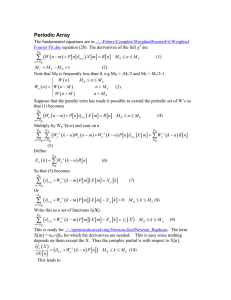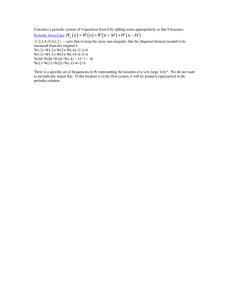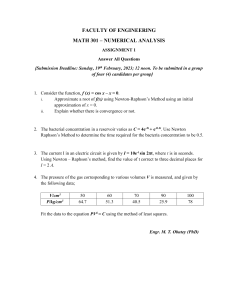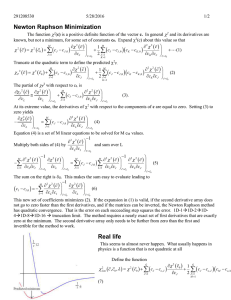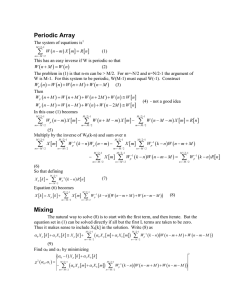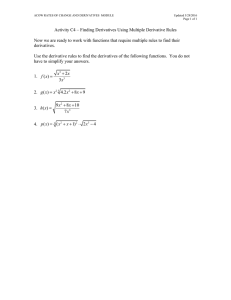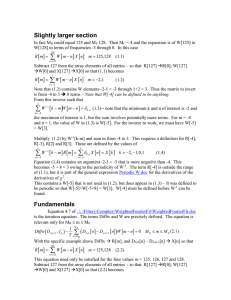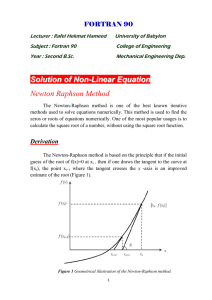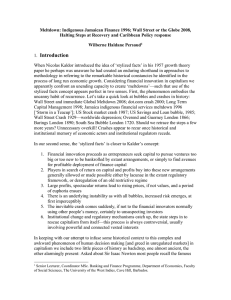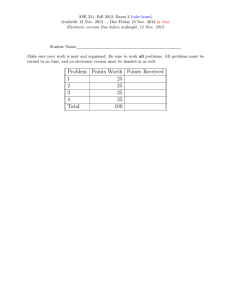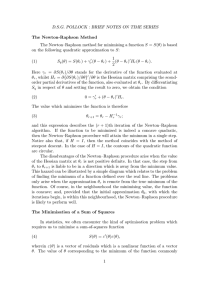advertisement
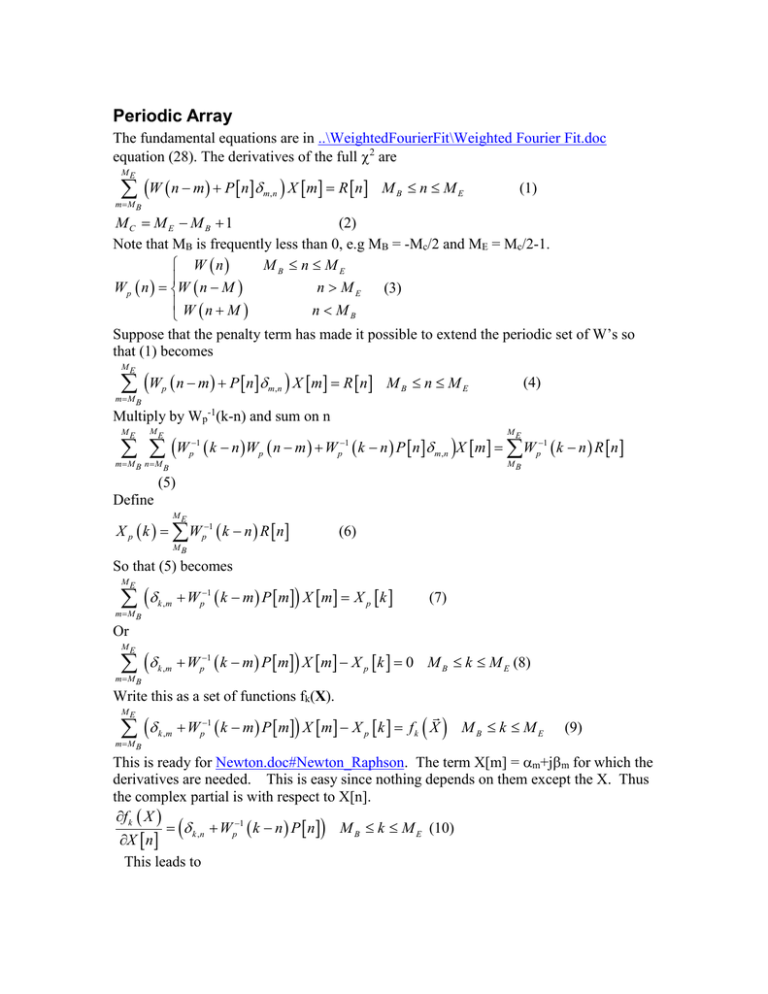
Periodic Array The fundamental equations are in ..\WeightedFourierFit\Weighted Fourier Fit.doc equation (28). The derivatives of the full 2 are ME W n m P n X m R n m, n m M B MB n ME (1) (2) MC M E M B 1 Note that MB is frequently less than 0, e.g MB = -Mc/2 and ME = Mc/2-1. MB n ME W n W p n W n M n ME (3) W n M n MB Suppose that the penalty term has made it possible to extend the periodic set of W’s so that (1) becomes ME W n m P n X m R n p m M B m,n MB n ME (4) Multiply by Wp-1(k-n) and sum on n ME ME ME W k n W n m W k n P n X m W k n R n 1 p m M B n M B p 1 p m,n 1 p MB (5) Define ME X p k Wp1 k n R n (6) MB So that (5) becomes ME m M B k ,m Wp1 k m P m X m X p k k ,m Wp1 k m P m X m X p k 0 M B k M E (8) (7) Or ME m M B Write this as a set of functions fk(X). ME m M B k ,m Wp1 k m P m X m X p k f k X MB k ME (9) This is ready for Newton.doc#Newton_Raphson. The term X[m] = m+jm for which the derivatives are needed. This is easy since nothing depends on them except the X. Thus the complex partial is with respect to X[n]. f k X k ,n Wp1 k n P n M B k M E (10) X n This leads to ME mM B k ,m Wp1 k m P m X it m X it 1 f k X 0 Assuming that the diagonal term dominates f k X it 1 X it k X it 1 k (12) 1 W p1 0 P k (11)
